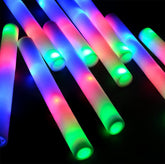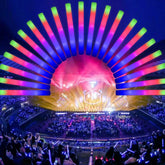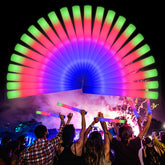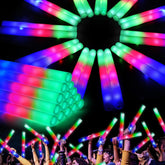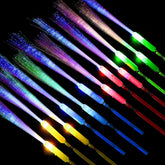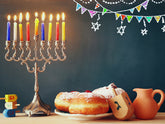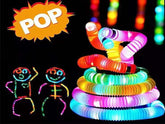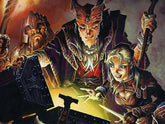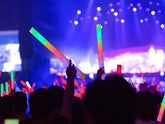The Celebration of Hanukkah: A Festival of Lights and Tradition
Hanukkah, also spelled Chanukah, is a significant Jewish festival that commemorates the miracle of the oil that lasted for eight days in the ancient Holy Temple in Jerusalem. The dates for Hanukkah vary each year based on the Hebrew calendar, which is based on the lunar cycle. In 2023, it will begin on the evening of December 7th and conclude on the evening of December 15th.

Duration of Hanukkah
Hanukkah spans eight days and nights, symbolizing the miracle of the oil. It begins on the 25th day of the Hebrew month of Kislev and concludes on the 2nd or 3rd day of Tevet, depending on the year. The festival is marked by the lighting of the menorah, a nine-branched candelabrum, each night.
What is Hanukkah the celebration of?

Hanukkah holds historical significance, celebrating the victory of the Maccabees over the Seleucid Empire in the 2nd century BCE. The Maccabees were a Jewish family who led a revolt against the Seleucid Empire, which had conquered Judea and tried to force the Jews to abandon their religion. The Maccabees eventually defeated the Seleucids and rededicated the Temple in Jerusalem. The miracle of the oil, where a small amount of oil miraculously burned for eight days, is central to the festival.
Who celebrates Hanukkah?
Hanukkah is celebrated by Jews around the world. Families come together to light the menorah, sing traditional songs, play dreidel (a spinning top game), and enjoy special foods such as latkes (potato pancakes) and sufganiyot (jelly-filled doughnuts).
First Day of Hanukkah

On the first day of Hanukkah, families light one candle on the menorah, using the central candle, known as the shamash, to light the others. Each subsequent night, an additional candle is lit, progressing from right to left. By the eighth night, all candles are illuminated.
How to Celebrate Hanukkah
Lighting the Menorah:
The central and most symbolic Hanukkah tradition is lighting the menorah, a nine-branched candelabrum. Each night, starting from the first, a candle is added until all eight candles, known as the "hanukkiah," are lit. Use the ninth candle, called the "shamash," to light the others. The shamash is often placed higher or lower than the other candles.
Reciting Blessings:
Before lighting the candles, recite the blessings appropriate for each night. The blessings express gratitude for the miracles associated with Hanukkah.
Playing Dreidel:
Dreidel is a spinning top game traditionally played during Hanukkah. Each side of the dreidel has a Hebrew letter representing the phrase "Nes Gadol Haya Sham," meaning "A great miracle happened there." Players use tokens (usually chocolate coins called gelt) and follow the rules of the game.
Enjoying Traditional Foods:

Hanukkah is also a time for enjoying special foods. Potato latkes (pancakes) and sufganiyot (jelly-filled doughnuts) are popular Hanukkah treats. Cooking and sharing meals with family and friends is a significant part of the celebration.
Giving and Receiving Gifts:
Hanukkah is a gift-giving holiday. Families exchange presents, especially for children, on each night of the festival. This tradition adds an element of joy and excitement.
Attending Community Celebrations:
Many Jewish communities organize public menorah lightings, concerts, and events during Hanukkah. Participating in these communal celebrations can enhance the festive spirit.
Educational Activities:
Hanukkah is an excellent time to share the story and significance of the festival, especially with children. Engage in educational activities, such as reading books about Hanukkah or discussing its historical and cultural aspects.
Charitable Acts:
Emphasize the spirit of giving by engaging in charitable activities. This could include donating to a cause, volunteering, or helping those in need.
Attending Synagogue Services:
Participate in special Hanukkah services at the synagogue. These services may include the lighting of the menorah and readings related to the festival.
Sing Hanukkah Songs:
Many traditional Hanukkah songs are sung during the holiday, such as "Ma'oz Tzur" (Rock of Ages) and "Hava Nagila" (Let's Rejoice). Singing Hanukkah songs is a wonderful way to celebrate the holiday and get the whole family involved.
Decorating the Home:

Enhance the festive atmosphere by decorating your home with Hanukkah-themed items, such as blue and white decorations, dreidels, and banners. Remember, the essence of Hanukkah lies in the celebration of miracles, freedom, and the resilience of the Jewish people. Customizing theseIn conclusion, Hanukkah is a joyous celebration that holds deep historical and cultural significance for the Jewish community. It is a time for Jews to come together and celebrate their heritage and traditions. It brings families and communities together, fostering a sense of unity and shared tradition. As the menorah's lights shine brightly each night, so does the spirit of hope, resilience, and miracles that Hanukkah represents. Customizing these traditions to fit your family's preferences and incorporating personal touches can make the celebration even more meaningful.
Wishing Happy Hanukkah

To wish someone a Happy Hanukkah, you can use traditional greetings such as "Chag Sameach" (Happy Holiday) or "Chanukah Sameach" (Happy Hanukkah). Additionally, expressing good wishes for a season filled with joy, light, and blessings is always appreciated.
Forbidden Activities during Hanukkah
While Hanukkah is a time of joy and celebration, there are no specific prohibitions or forbidden activities associated with the festival. However, individuals may choose to refrain from work during the candle lighting period, allowing time for reflection and family gatherings.

In conclusion, Hanukkah is a joyous celebration that holds deep historical and cultural significance for the Jewish community. It is a time for Jews to come together and celebrate their heritage and traditions.It brings families and communities together, fostering a sense of unity and shared tradition. As the menorah's lights shine brightly each night, so does the spirit of hope, resilience, and miracles that Hanukkah represents.

